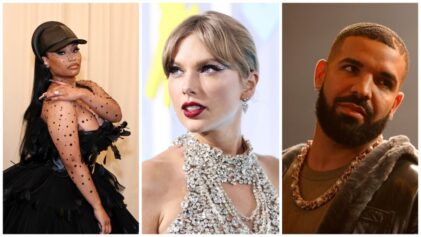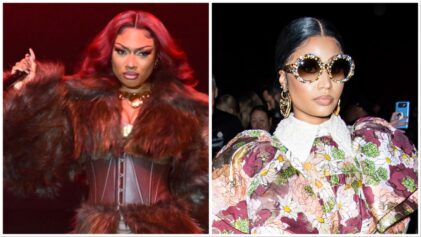It turned out to be a pretty rough year in 2014 for hip hop, as the album sales for the genre dropped more than 24 percent and CD sales plummeted by nearly 30 percent.
The culture around hip hop is certainly unlike any other music genre and the purchasing behavior of hip hop lovers is still one that is extremely hard to predict.
One thing that can be said for sure, however, is that more people are going online to get their fill of hip hop music rather than buying hard copy CDs. Consumers are also buying one or two hit songs from an artist rather than buying their entire album.
The trends left the hip hop industry struggling to break even in 2014.
According to Nielsen Music’s annual wrap-up, hip hop albums sold 24.1 percent less in 2014 than they did in 2013 and CD sales saw a 29.6 percent decline.
Digital sales also took a serious hit and dropped more than 20 percent since 2013. While the entire music business saw a decline in CD and album sales, hip hop was clearly hit the hardest.
It comes as no surprise considering not a single hip hop artist even managed to touch the top 10 album sales of 2014.
The drastic drop in sales is causing some people to question what is going on with the genre.
Was the drop caused by a lack of interest in hip hop music or was it the result of a year full of lackluster albums?
Perhaps it was the result of poor marketing or the sheer amount of songs being leaked before albums were even set to release.
Quite frankly, the numbers suggest some truth to almost all of those possibilities.
The interest in hip hop music is still incredibly high and hip hop artists are actually being used to help bridge pop stars to a new demographic they wouldn’t have reached otherwise.
Hip hop stars have even become the holy grail for Disney and Nickelodeon stars who wish to shed the skin of their innocent TV personalities. Just look at Miley Cyrus, Zendaya, Ariana Grande and Nick Jonas.
As far as lackluster albums, leaked tracks and poor marketing, it all played a part in the hip hop sales plummeting, along with the genre’s worst adversary—streaming services.
Streaming services have long been hip hop’s arch nemesis and the Nielsen data proved that the rap industry’s villain struck again.
Streaming numbers for the entire music industry increased more than 50 percent last year and hip hop and rap have long been the most popular genres on such services.
While some believe the increase in streaming numbers is something to be optimistic about, it’s actually a number that suggests artists are having their profits snatched out of their pockets and if they can’t make money making music, they might not continue making it at all.
Data released by Trichordist revealed that most streaming services were paying artists less than $.01626 per stream as of February 2014.
Some of the most popular streaming services like Spotify were giving payouts as little as $.00521 per stream.
This means that an artist would have to be streamed more than 120 times to equal the profits they would have made off of just one iTunes download.
The sharp increase in hip hop and rap music being streamed online just proves that the genre is still popular, but the fact that listeners are going online to stream their music rather than purchase it is still troubling for the genre.
This also doesn’t account for the fact that many hip hop artists find their tracks leaked online and thousands of would-be buyers are able to download their entire album for free before it even hits the shelves.
It’s a problem that the genre’s top selling artist of 2014 encountered with the release of his latest album, 2014 Forest Hills Drive.
J. Cole topped the hip hop album sales charts after selling more than 577,000 copies.
Shortly before its release, however, the entire album found its way online and many J. Cole fans admitted to downloading the free version.
Nicki Minaj also saw her album, The Pink Print, get leaked online shortly before its scheduled release date.
Another major factor for the album sales drop could very well be the lack of albums put out by hip hop’s heaviest hitters.
Drake, Jay-Z and Kanye West are known to garner some of the most impressive album sales but none of the artists had new albums out in 2014.
They did dominate 2013, however.
Drake’s Nothing Was The Same ranked as the seventh best selling album of 2013 with 1.34 million album sales and Jay-Z came in at number 10 with 1.1 million album sales for Magna Carta Holy Grail.
Kanye’s Yeezus failed to live up to the sales of his previous albums but still pulled in an impressive 1 million in sales in the U.S.
So whether or not the increase in on-demand streaming for hip hop is a good thing really depends on perspective.
Once this trend is combined with such a drastic decrease in album sales, it also serves as a lesson for hip hop fans and hip hop artists alike.
For hip hop fans, they will have to support their favorite artists monetarily if they wish to see more great productions from them.
For hip hop artists, the digital age means that forming a certain bond and following with fans is just as important as making quality music if they wish to get listeners to take their support to the next level by actually purchasing their albums.


